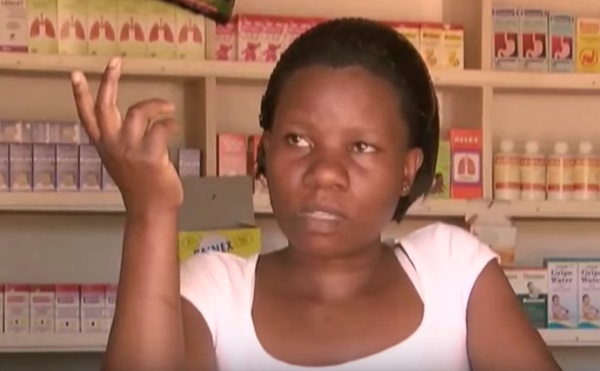Uganda lies in the tropical world, epidemiologists and researchers have found the tropics to have many un-similar bacteria, and these are the lead causes of the many infections we suffer from. If you choose to ignore asking questions on the quality of doctors, nurses and paramedics you find a health facility you will be on the risk of contracting more illnesses, getting wrongly diagnosed, wrong treatment and on the extreme death may occur in poor health facilities.
Amidst the growing number of bacteria, wrong diagnosis and treatment can result into antimicrobial resistance. The World Health Organization listed pneumonia, tuberculosis, blood poisoning and gonorrhea as infections that were becoming harder to treat as the antibiotics used to treat them were becoming expensive. But why was this happening. “The bacs themselves, they are becoming more complicated. If a bacteria wants to survive obviously survival is for the fittest and so it will find means of producing enzymes that go beyond the antibacterial viral activity. ” Said, Dr. Sabrina Kitaka – Infectious Disease Specialist of Pediatrics, Mulago.
Dr. Kitaka, a Pediatric Infectious Diseases Specialist at Mulago Hospital said the number of children presenting these infections was on the rise. “We typically see infections like malaria but also things like meningitis and pneumonia are neonatal septicemia and am telling you that the biggest burden of bacterial septicemia is mostly in children.” Antibacterial resistance could affect anyone of any age and it occured naturally but misuse of antibiotics in humans and animals was accelerating the process. “People have given antibiotics to chickens and to other livestock and then the antibiotics are limited in the livestock. So they are causing further and further resistance.”
Antibiotics were classified under class B this meant they were only supposed to be sold on prescription. “And I think the problem is with all of us; the clinicians who prescribe, the community that goes and picks antibiotics from pharmacies and they don’t complete the dose.” Other factors like weak laws enabled medical professionals and drug shops to sell antibiotics to people who do not need them. Poverty was also another huge factor in this; “Give me two capsules because that is what I can afford and that’s really dangerous because you are just simply massaging the bacteria and not killing it.”
The National Drug Authority was in charge of monitoring the performance of the drugs on the market, the secretary to the authority Donna Kusemererwa said the authority was aware of the illegal sale of drugs. “The problem of over the counter sale of medicine is one that we are very concerned about it is quite complex. Right now there’s a mix up roles; clinics are dispensing, pharmacies are prescribing and so it requires under the leadership of the Ministry of Health, we as the regulators of the products and medicines and the regulators of the professional to come together and agree that we must restore things the way they ought to be.” She however said, there was an exception for the amoxicillin which was distributed as per Ministry of Health regulation. “The Ministry of Health has authorized Village Health Teams and Village Health Workers to dispense, to deal with pneumonia in children.” NTV also asked her if there were any new antibiotics on the market or those that had been taken off. “Well, antibiotics become let's say useful for a particular infection, they may retain the usefulness for another infection so it is not often that we completely remove antibiotics from the market because most antibiotics treat a range of infections. So if it is amoxicillin, we may have ten manufacturers who entered our market then maybe every year another one or two will enter the market with still amoxicillin but from a different source. But we have not had novel antibiotics being registered presently.”
Dr. Kitaka said medics had an important role to play in averting the misuse of antibiotics. “Doctors shouldn’t treat viruses with antibiotics, doctors shouldn’t be treating fungal infections for instance with antibiotics, they shouldn’t be treating common colds with antibiotics and it is important to follow the sensitivity pattern if you don’t then the patient will not recover. The cost of developing one antibiotic cost around 3 billion US dollars from the development in the lab and then using the antibiotic in animal models and then by the time it reaches the population which we call phase for trials, it is so expensive. I think in the last 50 years, one or two new antibiotics have been formed because it is so expensive and so if you run out of options; what is going to happen?”

